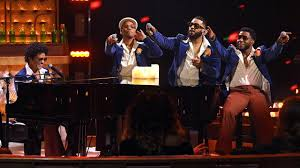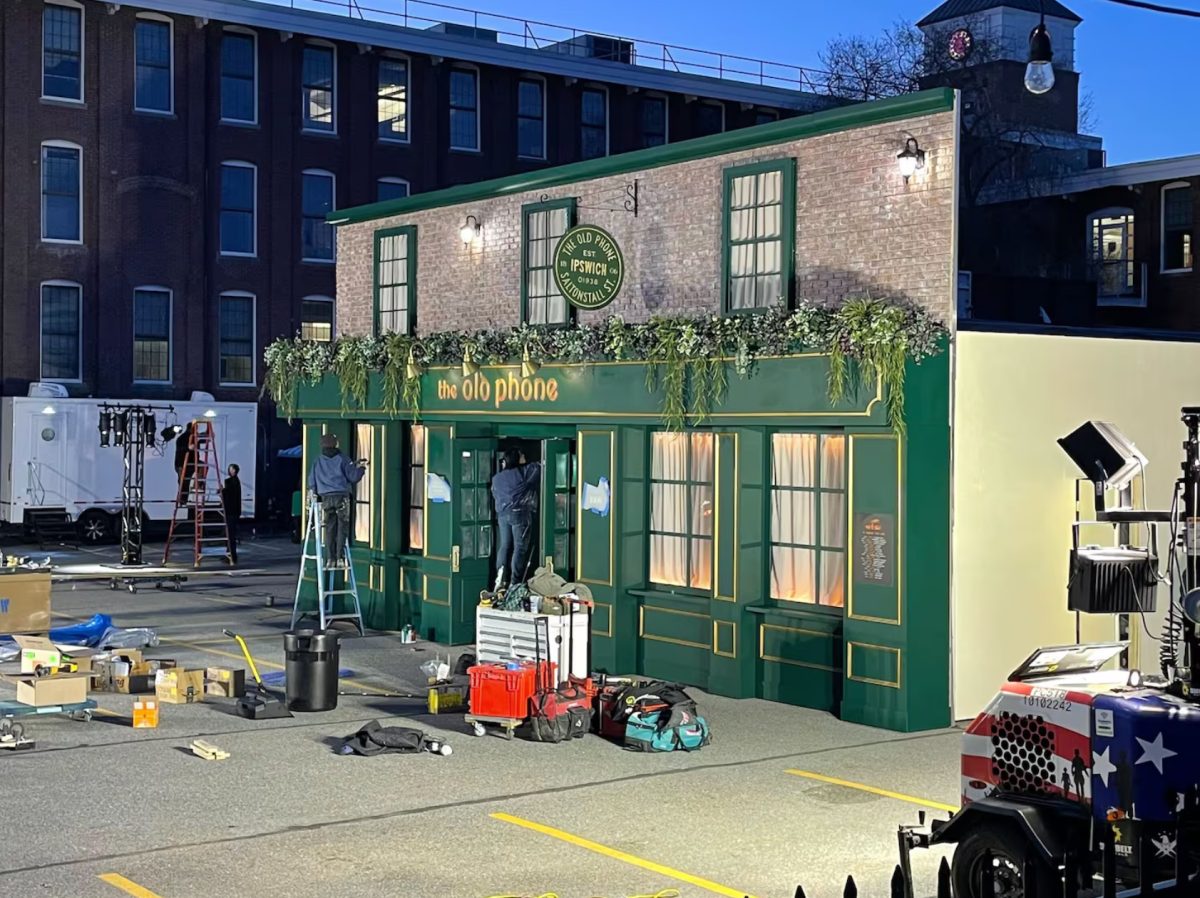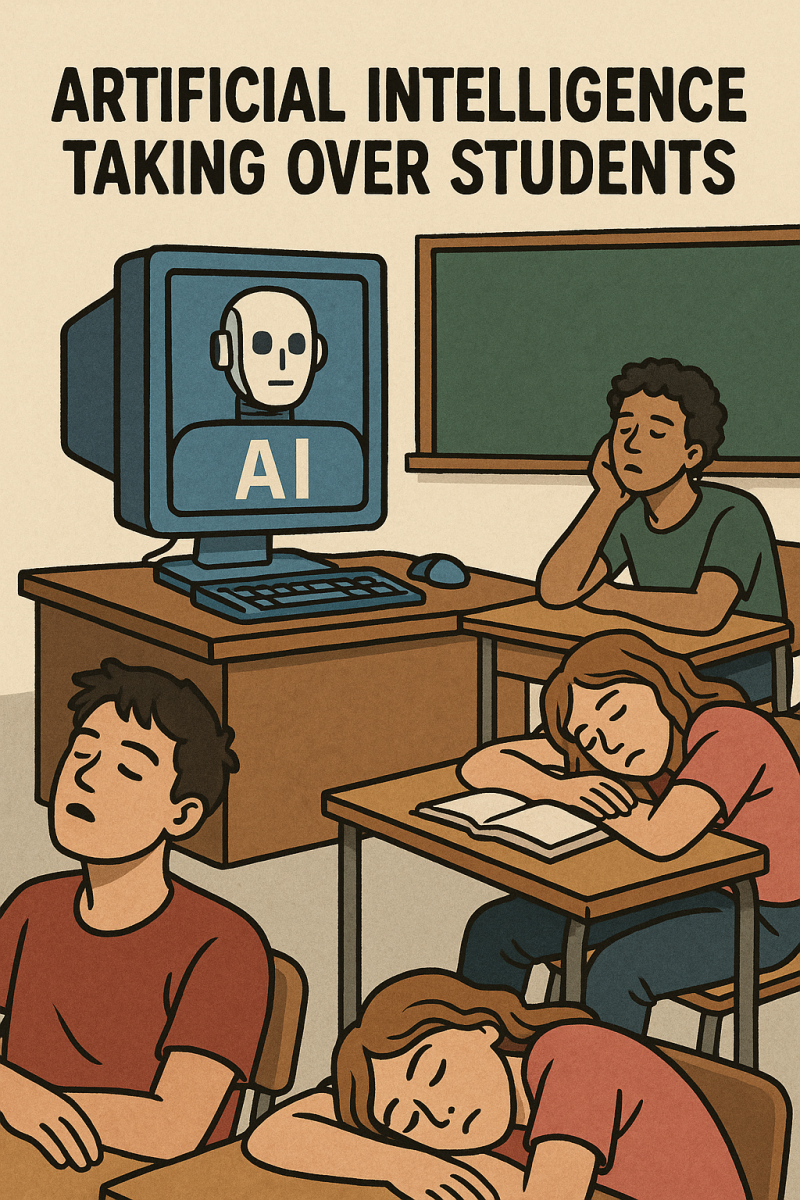Joker: Folie à Deux recently hit theaters, and fans and critics are furious with almost every aspect of the film. However two Triton Voice reporters saw the movie and felt quite differently about the film.
On October 4th, 2024, Joker: Folie à Deux, the highly anticipated sequel of the 2019 film ‘Joker’ was released. The movie was set to star Joaquin Phoenix and Lady Gaga. The film starred Phoenix in a way nobody had seen him before, singing and dancing, and fans were curious to see how it would turn out. Consequently, fans and supporters of the first film were highly disappointed with the sequel’s release.
“But it’s not what anyone else wanted, either. It’s so inert and pointless that if staying the course isn’t the issue it’s only because staying awake is,” wrote John Wilmes, an experienced movie reviewer for the Chicago Reader.
Leading up to the release of the new film, professional movie reviewers and film festival-goers were able to see it before everyone else. The reception to the film was bad, so when Joker: Folie à Deux finally hit theaters, it flopped. The film made only $37.8 million in its opening weekend and people absolutely hated the movie which was extremely underwhelming to everyone involved in the making. This is less money made in the first weekend than the historical disaster that is 2022’s Morbius. Most fans are furious with most aspects of the movie but most distinctly articles and reviews mention the film’s failure in the musical aspects, the dull story, the pace of the film and Joaquin Phoenix’s character. However, the Triton Voice begs to differ.
Musical Aspects: What the critics are saying:
“‘Joker: Folie a Deux’ is a musical, technically, in that people are shown on screen singing. But the musical ‘numbers’ are not well-done. The song choices are too obvious.” – Tom Santilli, Critic
“But the premise of “Joker: Folie à Deux” — that Arthur the killer clown and his paramour, Lee (who starts to think she’s Harley Quinn), will express who they are by becoming jukebox songbirds…sorry, but that’s not a Broadway concept. It’s an audacious concept.” – Owen Gleiberman, Variety
What we say:
Michael: I highly disagree with the points made by reviewers online, Joker: Folie à Deux is a musical in every aspect of the word. The songs fit very well with the plot of the movie in each of the scenes. The way that the director Todd Philips even incorporates other characters into Arthur and Harley musical sequences is much like other musical films. I don’t think the songs are too obvious, I actually think it ridiculous to say that because the songs just fit so well. There were a few musical sequences in the movie that felt very cinematic and fitting. Everything from the choreography to the musical performances by the actors left me wanting more. Also, people don’t have the right to say this is out of the ordinary for Arthur, he was a clown, clowns are performers, and he gives some great performances in this movie.
Harry: I disagree with the argument that the musical parts of the film aren’t well done. I think a particularly good example of how the film utilized its musical aspect is when Arthur Fleck began singing in prison throughout the film. These moments occur when Arthur sees himself on TV. When Arthur sees the support he has on TV, he essentially transforms to his second personality, “Joker”. When Arthur sees himself as Joker he sees himself as a kind of anti-hero doing good for the people. In this state, Arthur can act as a performer and does so by singing. Remember, Arthur Fleck was a failed clown before entering prison. Clowns are performers for other people so it would make sense for the audience to see that side of Arthur’s personality during the film.
Plot:
What the critics are saying:
“If that sounds interesting, allow me to clarify: it isn’t. Folie à Deux’s literal relitigation of Joker, carried out as though it were a holy text, demands that we both remember and care about the inner details of another comic book movie from five years ago.” John Wilmes, Chicago Reader.
What we say:
Michael: The plot is the most hated thing in this movie based on reviews I have read online, but I think people just misinterpret it. Todd Philips was just able to move the story along with the character of Arthur Fleck instead of the average Batman movie where the story continues with extreme stunts performed by Joker to terrorize Gotham. It’s important to remember that Arthur Fleck is just a person living with mental disabilities. The quote I think about most often and one that encapsulates the story of Joker: Folie à Deux in a nutshell goes “What do you get when you cross a mentally ill loner with a society that abandons him and treats him like trash?” Joker: Folie à Deux shows what you get. This is the result of the first movie, sorry to all the people who expected the average cynical Joker. This is the result of the first movie in a realistic society. The only saving grace for Arthur in this movie was meeting Harley. If it weren’t for her, Joker wouldn’t have been seen at all in this movie, society would have broken Arthur earlier.
Harry: I find it odd how critics complain about the movie being confusing and forcing the viewer to rely on prior knowledge from the first film. I mean isn’t the point of a sequel movie to follow up on events that occured in the first film? The only information from the first film that is important to know in the second are key plot points, like the event that occurs at the end of the first when Arthur goes on the Murray show. I think it’s pretty clear in the movie that the “Joker” film universe isn’t the average comic book movie, with generic superheroes and villains battling it out. Instead, “Joker” and “Joker: Folie a Deux”, offer a darker, realistic take on the character Joker and the city of Gotham. To me it seems as though many reviewers are lazy in that they decided to criticize literally anything they can even if it doesn’t really apply.
Pace:
What the critics are saying:
“Groan-inducing run time” John Wilmes, Chicago Reader
“The songs don’t move the plot along – but then nothing moves the plot along. I kept waiting for the film to really start. It never did. There’s just a lot of milling around.” Deborah Ross, Spectator
What we say:
Harry: The pace of the movie takes a slow burn approach which lets the film take time focusing on Arthur’s complex relationships, particularly with Lee Quinzel and his lawyer. Each scene takes its time and never rushes to the next, allowing the viewer to fully take in the tension, relationships and events happening on screen. Unlike other films which include a Joker that are filled with action and fighting, Joker: Folie à Deux, like its predecessor, slows down the pace in order to delve into the psyche of Arthur Fleck/Joker. The pace heightened the tension of the film and made Arthur’s character more believable.
Michael: I believe that pace wasn’t bad in this film for what little happened in the film. I think the littleness of the film is what makes it fit though. This is a character study on the character of Arthur Fleck. There were no moments of Joker blowing things up or killing other people, in this film you have to think about the situation from Arthurs perspective. The pace of this film was not bad, it was easily broken up with cinematic, musical sequences and the occasional out of pocket moment.
The Character of Joker:
What the critics are saying:
“And that’s what we’re hungry to see the continuation of in “Folie à Deux”: Arthur the ordinary maniac who somehow, by embracing his identity as Joker, transcends who he is. The letdown of the movie is how little it makes us feel that….. there’s no longer any danger to his presence. He’s not trying to kill someone, and he’s not leading a revolution. He’s just singing and (on occasion) dancing his way into his Joker daydream.” Owen Gleiberman, Variety
What we say:
Harry: I think the movie does a good job of showing the two sides of Arthur Fleck’s personality, Arthur and Joker. The reviewers criticize how Arthur is too different in the second film. saying he isn’t a threat or a danger in this film is simply incorrect. The following of people he has gained from his actions in the first film is now a mob of people who even blow up the court he’s in to help him escape. However, the point of the film is to explore Arthur Fleck as a character. We don’t see his traits of anger, sadness, and dangerous unpredictability in the form of a violent killing spree like the first film. Instead we see Arthur’s personality through different ways in jail. Over and over the audience watches as Arthur goes down a path of self destruction due to his unpredictability. He will often make poor decisions in order to win the support of his followers and Lee Qunizel. We see this when he fires his lawyer and chooses to represent himself in court. Arthur is someone willing to make these decisions to appeal to others, which ultimately shows he is a lonely man who craves attention, not the hero of the people he claims to be. Arthur’s character is probably the most complex Joker viewers have seen which I thought was a cool part of the film.
Michael: By the end of the film, we can clearly see the split in Arthurs personalities but you have to think about this fact the whole movie. I think the idea was also clearly present the whole film including the very first scene. The first scene in this movie is great, it shows an animated sequence in which Arthur and Joker are basically fighting for his body. This is also shown throughout the film, there were times when Arthurs good side was doubting what Joker was doing. Although it was never converted verbally, I think it was shown well in many scenes. One of these scenes that comes to my mind is when Harley visits him in the prison through the glass. Arthur started to question why she was lying to him as she began to break out in musical sequence. I believe that these musical sequences and music in general is what brings the Joker out in Arthur, which is why Harley started to sing and dance in this scene. This was also exemplified earlier in the film when Arthur was asked what he remembers about the night he killed Murray Franklin and he replies, “The music.”


Staff writers Harry Pike and Michael Coco.
Photos by Pike and Coco.
















